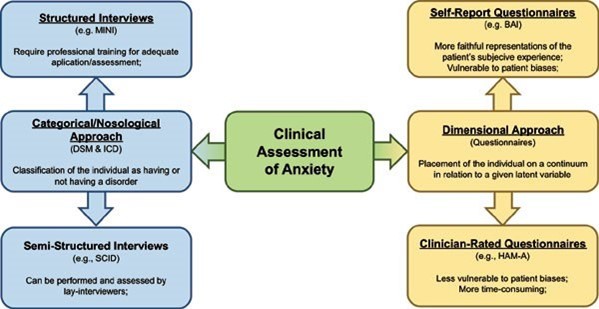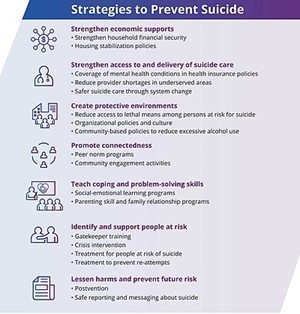A nurse is caring for several clients who are attending community-based mental health programs. Which Of the following clients should the nurse plan to visit first?
Select one:
A client who recently burned her arm by accident while using a hot iron at home.
A client who tells the nurse he experienced manifestations of severe anxiety before and during a job interview.
A client who requests that her antipsychotic medication be changed due to some new adverse effects.
A client that says he is hearing a voice that tells him he is not worthy of living anymore.
The Correct Answer is D
This client is experiencing auditory hallucinations and may be at risk for self-harm or suicide. The nurse should prioritize visiting this client first to assess their safety and provide appropriate interventions.
Option a. A client who recently burned her arm by accident while using a hot iron at home may require wound care and education on safety, but this situation is not as urgent as the client experiencing auditory hallucinations.
Option b. A client who tells the nurse he experienced manifestations of severe anxiety before and during a job interview may benefit from interventions to manage anxiety, but this situation is not as urgent as the client experiencing auditory hallucinations.
Option c. A client who requests that her antipsychotic medication be changed due to some new adverse effects may require medication adjustment and monitoring for side effects, but this situation is not as urgent as the client experiencing auditory hallucinations.
Nursing Test Bank
Naxlex Comprehensive Predictor Exams
Related Questions
Correct Answer is C
Explanation
This response acknowledges the client's concerns and invites further discussion about their experience. The nurse can use this information to assess the severity and duration of the client's symptoms, as well as any potential triggers or stressors that may be contributing to their anxiety and inability to concentrate.
Option a "Have you talked to your friends about this yet?" may not be an appropriate response, as the client may need more professional support than what their friends can provide.
Option b "I have problems too, everybody has problems" may be dismissive of the client's concerns and may not help them feel heard or understood.
Option d "Have you talked to your parents about this yet?" may not be an appropriate response, as the client may not feel comfortable discussing their concerns with their parents or may need more professional support than what their parents can provide.
Option e "Why do you think you are so anxious?" may be seen as confrontational and may not help the client feel heard or understood.
Option f "It sounds like you're having a difficult time" acknowledges the client's concerns but does not invite further discussion or provide an opportunity for the nurse to gather more information.

Correct Answer is ["A","E"]
Explanation
a. Initiate one to one constant supervision around the clock: A client who has attempted suicide is at high risk for further harm, and close monitoring is necessary to prevent further attempts. Initiation of one-to- one constant supervision around the clock ensures that the client is continuously monitored, and any signs of suicidal ideation or behavior can be immediately addressed.
e. Check the environment for possible hazards: It is important to check the client's environment for potential hazards, such as sharp objects, cords, or other items that could be used to harm oneself. This step helps to ensure the client's safety and prevent further attempts.
The other options are not appropriate or necessary in this situation:
b. Ensure the client's hands are always visible: This action may be necessary if the client has a history of self-harm or aggressive behavior, but it is not specifically related to preventing suicide attempts.
c. Tuck bedcovers over client's hands and arms: This action may be necessary if the client has a history of self-harm, but it is not specifically related to preventing suicide attempts.
d. Inspect the client's personal belongings: While it may be important to inspect the client's personal belongings for any items that could be used for self-harm, this action is not as urgent as initiating constant supervision and checking the environment for hazards.
f. Assign the client to a private room: While a private room may be beneficial for the client's comfort and privacy, it is not specifically related to preventing suicide attempts.
g. Place only plastic utensils on the client's meal tray: This action is not specifically related to preventing suicide attempts, unless there is concern that the client may harm themselves with utensils.

Whether you are a student looking to ace your exams or a practicing nurse seeking to enhance your expertise , our nursing education contents will empower you with the confidence and competence to make a difference in the lives of patients and become a respected leader in the healthcare field.
Visit Naxlex, invest in your future and unlock endless possibilities with our unparalleled nursing education contents today
Report Wrong Answer on the Current Question
Do you disagree with the answer? If yes, what is your expected answer? Explain.
Kindly be descriptive with the issue you are facing.
